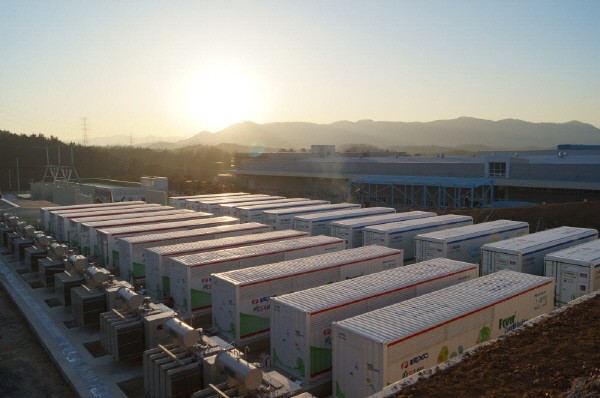Korea Electric Power Corporation (KEPCO) is proposing a gigawatt-class energy storage system (ESS) construction project. The project cost alone is in the range of KRW 700 billion to 800 billion. This means that the ESS market, which was suspended due to fire accidents in 2017 and 2018, will resume after 5 years. Although the ESS industry welcomes it, there are already concerns on profitability due to the recent surge in raw material prices.

KEPCO announced on the 21st that it would start a 920MWh ESS construction project in August to stabilize the national power system in accordance with the expansion of renewable energy such as solar power. The batteries that will be used alone are worth KRW 300 billion to 350 billion, and the total project cost, including the power conversion device (PCS) and construction, amounts to KRW 700 to 800 billion. The facility site alone is 26,500 square meters, which is the largest ever. It is the first time in five years that a large domestic ESS order has been placed.
Renewable energies such as solar power generation have severe fluctuations in the amount of power generation, which impairs system efficiency. However, when used together with ESS, system stabilization such as transmission can be maintained.
ESS facilities will be built in all five substations: Sinnamwon (336 MWh), Bubuk (336 MWh), Yeongcheon (112 MWh), Yesan (82 MWh), and Hamyang (56 MWh).
After issuing a bid in August, KEPCO plans to complete the supply contract, including selecting a company, by October. These large ESSs will be operated from the second half of next year.
Hyosung Heavy Industries, Hyundai Electric, LS Electric, LG Electronics, and Woojin Industrial Systems are reportedly planning to participate in the bid. In particular, for batteries, Samsung SDI and LG Energy Solution products are likely to participate in accordance with KEPCO's international bidding standards.
KEPCO's bidding method is a comprehensive winning bid system that includes technical evaluation scores, but the proportion of lowest-priced bids determines the deciding power. For this reason, the industry welcomes large-scale orders but is concerned about profitability.
An industry official said, "It is good to see the ESS business reviving in South Korea, but the budget for this project was set based on last year before the price of various raw materials increased," adding, “Since the price of various raw materials has risen sharply, we are concerned about the situation in which participating companies have to participate below cost in the actual price bidding.” In this regard, the industry believes that it is necessary to introduce a 'price linkage system' implemented by complete battery and complete vehicle makers.
By Staff Reporter Tae-jun Park gaius@etnews.com